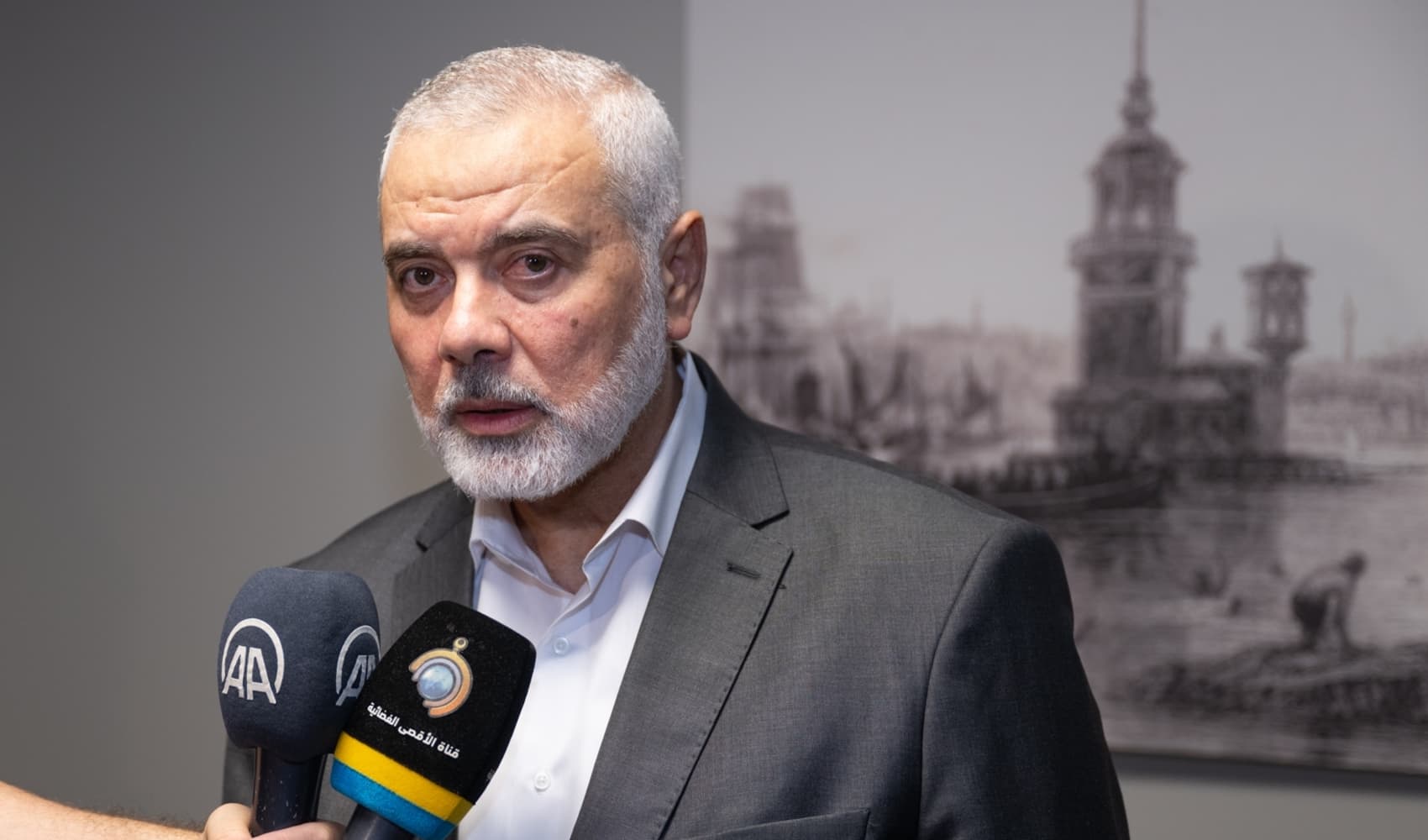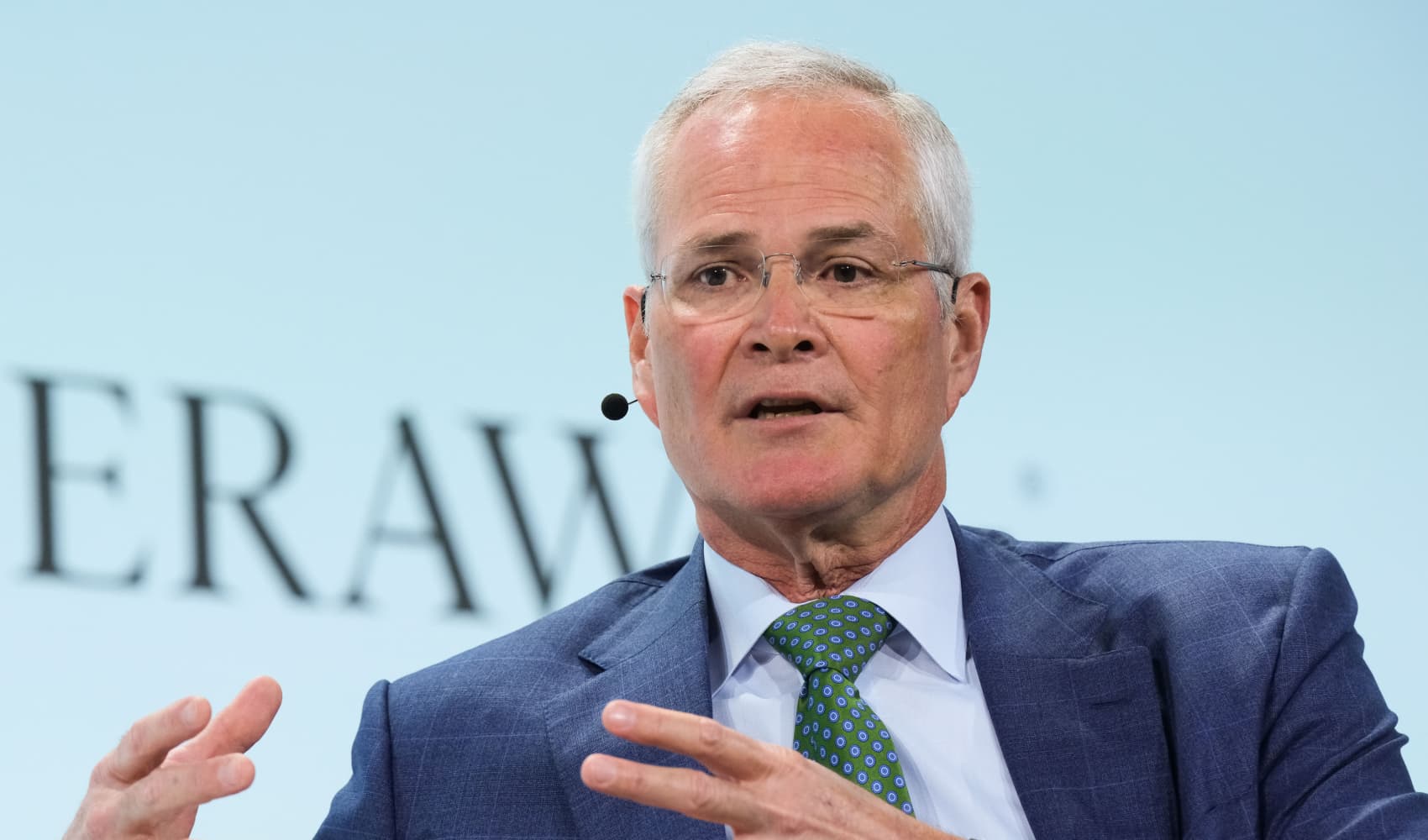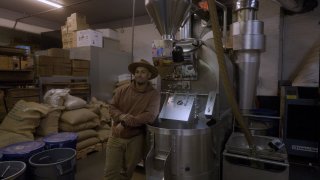
Rampant inflation has made it harder and harder for those on modest incomes to stretch a dollar. Depending on where you live, making ends meet can feel downright impossible.
In New York City, for instance, a combination of federal, state and local taxes along with a sky-high cost of living makes a $100,000 salary feel like $35,791, according to an analysis by SmartAsset.
If that's the case, how does someone in that city get by on just $25,000?
Ask Hector Carvajal. That's what the 26-year-old founder of coffee roasting company Don Carvajal pays himself in salary while his business is still growing. For the son of an immigrant family from the Dominican Republic, the calculus behind hustling while living on less is simple: "I just make it work, the same way my mom made it work."
Get a weekly recap of the latest San Francisco Bay Area housing news. Sign up for NBC Bay Area’s Housing Deconstructed newsletter.
Carvajal is one of three recent Make It interviewees who earns less than $30,000 while living in a coastal city. Chi Baik, a 26-year-old former teacher, lives on $27,000 a year while pursuing her Ph.D. in special education at the University of Washington in Seattle.
Tiara Simmons, a 39-year-old law clerk living in Long Beach, California, pulls in $26,000 a year between her salary and a social media marketing side hustle.
All three are pursuing their dreams and passions, even if it means the financial situation is less-than-ideal for now.
Money Report
"I'm not rolling in the dough right now and I probably will never be," Simmons tells CNBC Make It. "But as long as I can survive and as long as I'm doing what I think is my mission in life, I'm OK."
Living on $25,000 from a South Bronx coffee business
Carvajal studied business marketing at University of Rochester, and when a professor tasked him with mocking up a business plan, his first thought was coffee. "In the countryside of the Dominican Republic, we farm, we harvest, we roast coffee," he says.
Hoping to bring attention to Dominican-sourced products, he named the business and designed the logo after his grandfather, who provided for his family as a farmer in the Dominican Republic.
The project was a success. After he wrapped the class, Carvajal posted some extra coffee for sale on social media. When it began getting a lot of attention from friends, he realized he had an opportunity to capitalize. Carvajal went back to his dorm room and registered Don Carvajal Café as a business in New York.
In 2019, he took a leave of absence from college, one year from graduation, to pursue the business full-time. Soon, he found a roasting facility in Long Island City, acquired a delivery truck and hired employees.
From January through early December 2022, Carvajal's business brought in roughly $190,000 in sales.
Hoping to reinvest in his business, Carvajal pays himself a salary of just $25,000 and lives as minimally as possible. That meant living rent-free with his mother in the Bronx for three years while he got his business up and running. He and his girlfriend started splitting a $1,500-a-month apartment in late 2022.
"I learned you don't need that much to survive," he says.
As for his business, Carvajal hopes to put Dominican-based coffee growers back on the map while steadily expanding his business. Late last year Don Carvajal's struck a deal to sell coffee at Whole Foods stores throughout the northeastern region of the U.S.
Earning $27,000 while pursuing a Ph.D. in Seattle
When Baik moved from Washington D.C. to Seattle for a Ph.D. program, she knew it meant downsizing her income. She went from earning about $60,000 as a teacher to about $27,000.
It also meant downsizing her physical space. She used to pay $800 to split a townhouse with friends, but now spends $1,157 for a 240-square-foot micro-studio.
Even though her money and her living quarters are tighter, Baik doesn't regret the move. "It feels like I'm starting a new chapter in my life, and I'm really excited for it."
Baik first gave teaching a try in college after she realized during her sophomore year that her business major wasn't leading to anything fulfilling. Her first student teaching experience saw her working with 3- to 5-year-old students with moderate to severe disabilities. She loved it.
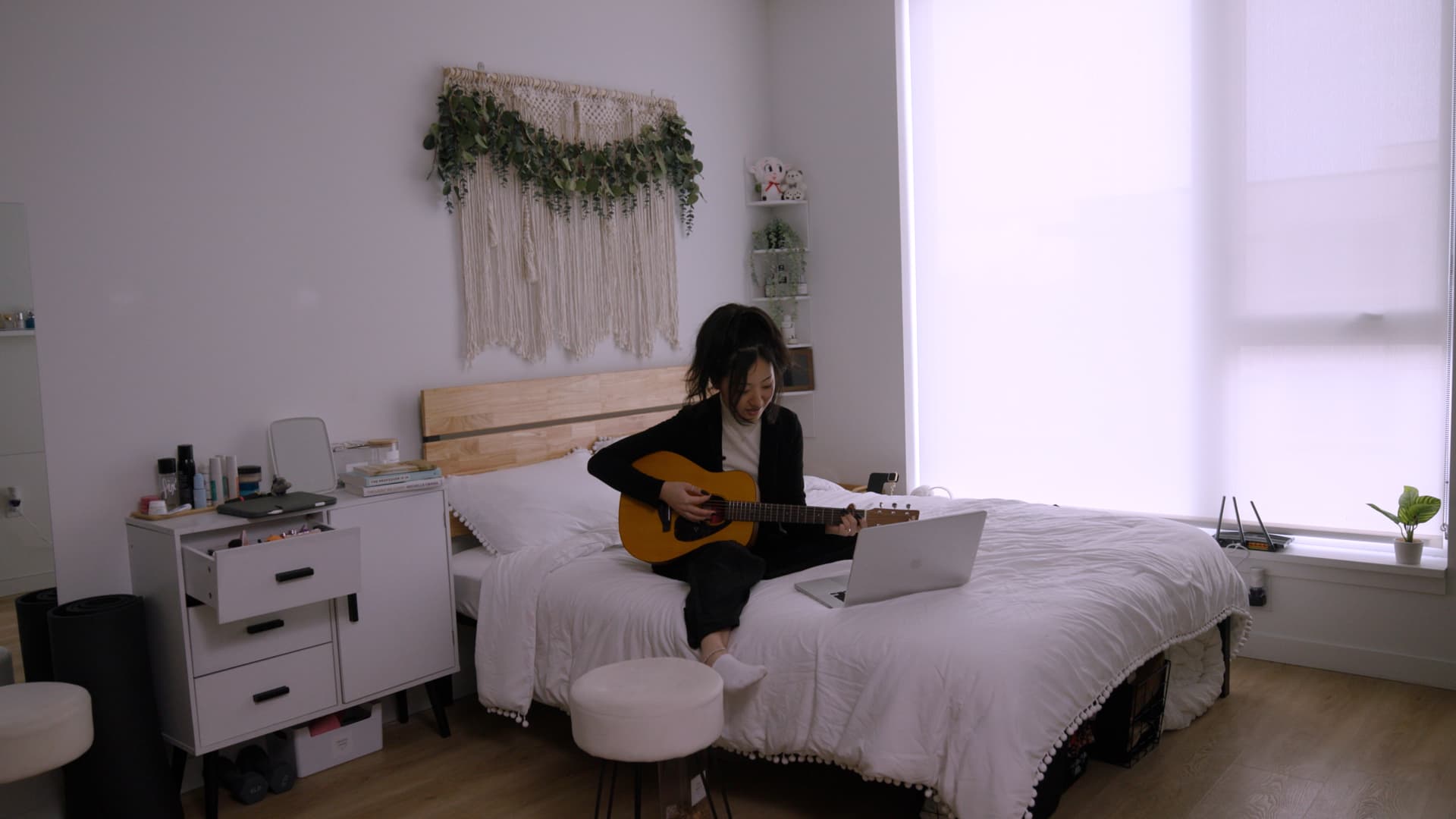
"It sounds clichéd, but it really did feel right," she says.
She went on to earn a dual bachelor's degree in early childhood education and early childhood special education, and worked full-time as a teacher for four years while earning her master's in special education. While working as a teacher during Covid lockdowns, Baik decided to pursue a doctorate earlier than she'd planned.
Baik was somewhat of a "super-saver" during her stint as a teacher, socking away 30% of each paycheck toward two retirement accounts. As a result, he's saved nearly $70,000.
These days, Baik isn't able to do much investing. "If I'm being honest, I do not have a lot of interest in [it]." As she sees it, "I'm not interested in getting the most money as fast as possible," and would rather focus on living within her means.
'Disabled, not lazy' and making $26,000 in Long Beach, California
Simmons, a 39-year-old double below-the-knee amputee, lives with her husband, who works part-time, her 3-year-old son, and their chihuahua in a one-bedroom apartment in Long Beach, California — an area not known for its affordability.
But more affordable places aren't always more accessible, says Simmons. The milder climate is easier on her wheelchair.
"I don't have a lot of options due to disability as far as where I can live, where I can go, where I can work," Simmons says. "Even if there was this amazing job opportunity out there for me, I would have to turn it down if it's someplace that I cannot get to on public transportation, because taxis and even Ubers, they're not options for me."
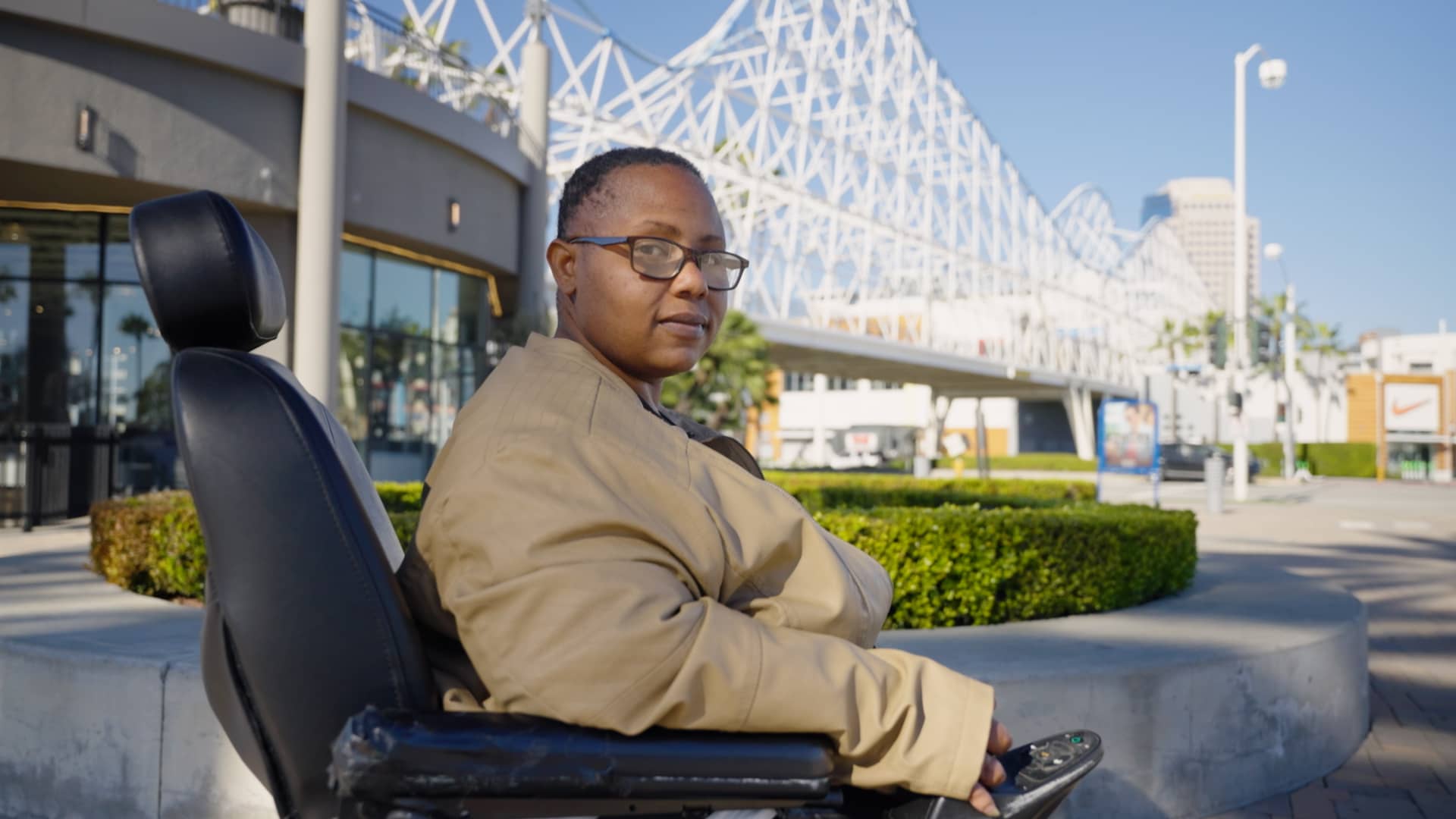
When Make It spoke to her earlier this year, Simmons was working as a law clerk at a solo practitioner family law firm and had just launched her own virtual law firm. Her ultimately goal: becoming an Los Angeles County public defender.
"I don't want to work in big law," she says. "I want to work for the everyday man, or woman. Person."
But just because Simmons isn't chasing the biggest payday does not mean she isn't willing to work hard.
"A lot of us cannot subscribe to the hustle culture that has become our society, and it's not because we're lazy, it's because we're disabled," she says. "And that's something that I repeat very often — disabled, not lazy."
DON'T MISS: Want to be smarter and more successful with your money, work & life? Sign up for our new newsletter!
Get CNBC's free Warren Buffett Guide to Investing, which distills the billionaire's No. 1 best piece of advice for regular investors, do's and don'ts, and three key investing principles into a clear and simple guidebook.


